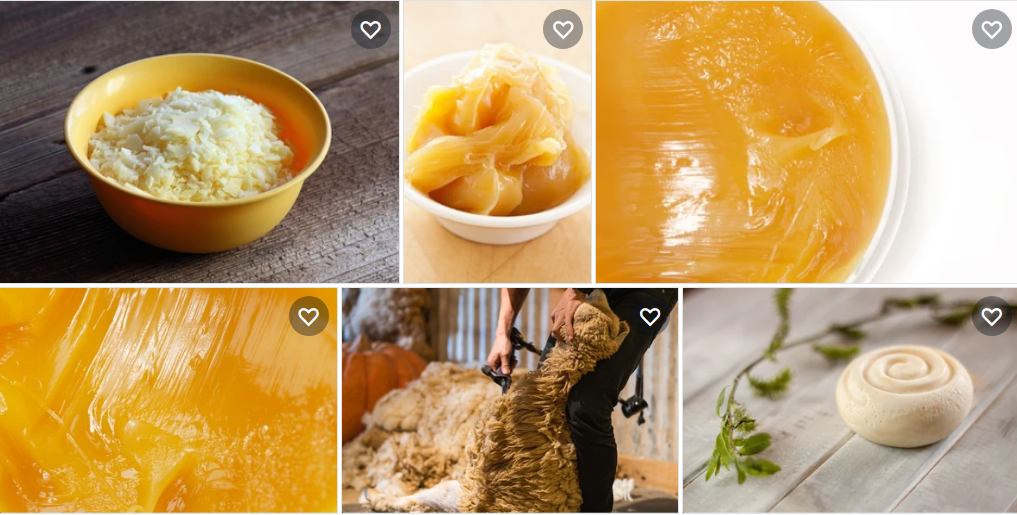Lanolin or wool wax, distributors, manufacturers, exporters, and suppliers in india
Vizag chemical is one of the leading Lanolin or wool wax, wool grease distributors, manufacturers, exporters, and suppliers in Visakhapatnam, Mumbai, Surat, Chennai, Ahmedabad, Pune, and Kolkata India. We are supplied to various industrial markets including Household, Institutional Cleaning, Personal Care, and Industrial sectors including Oil fields, chemical, Animal feed additive, Food additive, Agrochemical, Fertilizer, pharmaceuticals, water treatment, Minerals, Lubricants, Marine Industry, Metal Working chemical industry, and Coatings markets.
Lanolin also called wool yolk, wool wax, or wool grease is a wax secreted by the sebaceous glands of wool-bearing animals. Lanolin used by humans comes from domestic sheep breeds that are raised specifically for their wool. Historically, many pharmacopeias have referred to lanolin as wool fat (adeps lanae); however, as lanolin lacks glycerides (glycerol esters), it is not a true fat.[ Lanolin primarily consists of sterol esters instead. Lanolin's waterproofing property aids sheep in shedding water from their coats. Certain breeds of sheep produce large amounts of lanolin.
Lanolin and its many derivatives are used extensively in both personal care (e.g., high-value cosmetics, facial cosmetics, lip products) and health care sectors such as topical liniments. Lanolin is also found in lubricants, rust-preventive coatings, shoe polish, and other commercial products.
Lanolin is a relatively common allergen and is often misunderstood as a wool allergy. However, allergy to a lanolin-containing product is difficult to pinpoint, and often other products containing lanolin may be fine for use. Patch testing can be done if a lanolin allergy is suspected.
It is frequently used in protective baby skin treatment and for sore nipples from breastfeeding.
Lanolin is used commercially in many industrial products ranging from rustproof coatings to lubricants. Some sailors use lanolin to create slippery surfaces on their propellers and stern gear to which barnacles cannot adhere. Commercial products (e.g. Lanocote) containing up to 85% lanolin are used to prevent corrosion in marine fasteners, especially when two different metals are in contact with each other and saltwater. The water-repellent properties make it valuable in many applications as a lubricant grease where corrosion would otherwise be a problem.
Lanolin is used commercially in many industrial products ranging from rustproof coatings to lubricants. Some sailors use lanolin to create slippery surfaces on their propellers and stern gear to which barnacles cannot adhere. Commercial products (e.g. Lanocote) containing up to 85% lanolin[ are used to prevent corrosion in marine fasteners, especially when two different metals are in contact with each other and saltwater. The water-repellent properties make it valuable in many applications as a lubricant grease where corrosion would otherwise be a problem.
Anhydrous liquid lanolin, combined with parabens, has been used in trials as artificial tears to treat dry eyes.
Anhydrous lanolin is also used as a lubricant for brass instrument tuning slides.
Lanolin can also be restored to woolen garments to make them water and dirt-repellent, such as for cloth diaper covers.
Lanolin is also used in lip balm products such as Carmex. For some people, it can irritate the lips.
Lanolin is sometimes used by people on continuous positive airway pressure therapy to reduce irritation with masks, particularly nasal pillow masks that can often create sore spots in the nostrils.
Lanolin is a popular additive to mustache wax, particularly 'extra-firm varieties.
Lanolin is used as a primary lubricating component in aerosol-based brass lubricants in the ammunition reloading process. Mixed warm 1:12 with highly concentrated ethanol (usually 99%), the ethanol acts as a carrier that evaporates quickly after application, leaving a fine film of lanolin behind to prevent brass seizing in resizing dies.
Lanolin, when mixed with ingredients such as neatsfoot oil, beeswax, and glycerol, is used in various leather treatments, for example in some saddle soaps and in leather care products.
We are trying our best to supply every chemical you may wish to buy. However, if there is something you can’t find, feel free to contact us and we will find just what you are looking for and offer you a competitive price. For more information or to request a particular product, call customer services or Given website Email address.


Leave a comment